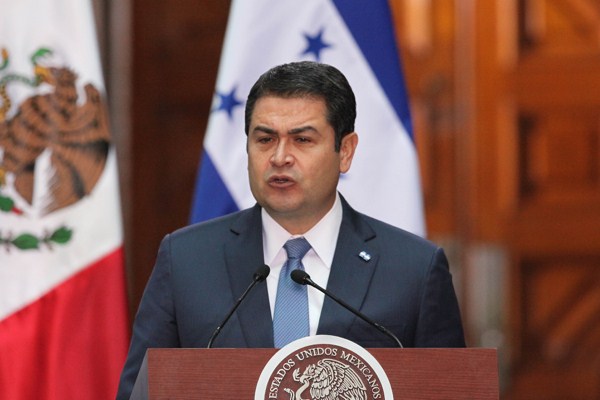Loading your audio article
Last month’s ruling by the Supreme Court of Honduras throwing out a constitutional ban on the re-election of presidents is far from an innocent opening up of democratic possibilities. Rather, the court’s decision is another step in the ongoing, methodical destruction of the rule of law and constitutional order in Honduras, which began with the 2009 military coup that deposed the country’s democratically elected president, Manuel Zelaya. Most ominously, given his record so far, the court’s decision paves the way for President Juan Orlando Hernandez’s continued hold on power, even as the United States is shoring him up as a strongman and welcome partner.
Article 239 of the 1982 Honduran Constitution, written in the aftermath of decades of military rule, deliberately and explicitly bans re-election of the president and vice president. It even mandates the immediate termination of any sitting president or vice president who advocates changing the ban, and his or her banishment from public office for 10 years for doing so. This was the ostensible justification for ousting Zelaya, who was planning to put to a referendum the formation of a constituent assembly to consider changes to the constitution. The Honduran military officers and right-wing politicians behind the coup charged, with no evidence, that Zelaya was planning to change the constitution so that he could run for re-election himself, which he denied.
But in recent weeks, 16 members of Congress, almost all of them from Hernandez’s ruling, right-wing National Party, along with former President Rafael Callejas, who was in office from 1990 to 1994, petitioned for the ban to be overruled. Ironically, Callejas and many of the members of Congress had supported Zelaya’s removal in 2009.

